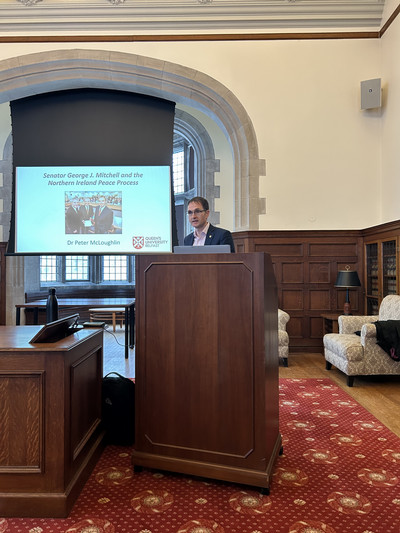International Relations Class Tests Normative Behavior — By Eating Bugs
By Rebecca GoldfineAfter spending a couple of classes discussing international norms and how normative change occurs, Visiting Assistant Professor of Government Rebecca Gibbons decided it was time to bring these lofty political ideas down a notch or two — right down to some basics, like bug food.
Her idea was inspired by a student’s presentation on a possible new dietary norm for the future — “Bugs not Beef.” She went online and snatched up several forms of attractively packaged bug treats: dehydrated and salted “mixed bugs” (grasshoppers, mole crickets, silkworms, crickets and sago worms), cricket chips, and cricket protein bars. She also whipped up some homemade chocolate brownies made from cricket powder.
“It sounds silly, but it has a purpose,” Gibbons reflected. She explained that because the food that people eat affects the environment so much, we could both adapt to new environmental realities and help prevent environmental degradation by changing our behavior and eating different types of food — if we can bring ourselves to do it, that is. The students’ reactions to the bug food suggested the difficulties of changing our norms.
“I would argue that the many challenges the international community faces require normative changes like this,” she said. “The way people think about what’s appropriate, whether it’s in terms of carbon, the food we eat, or the products we buy will probably have to change,” she added.
That change might have to go pretty deep — to the part of ourselves where norms and notions of what is appropriate and inappropriate reside. It is not easy, and for students who couldn’t stomach eating any of the bug snacks, Gibbons brought some bug-free Dunkin’ Donuts to the class, too.



